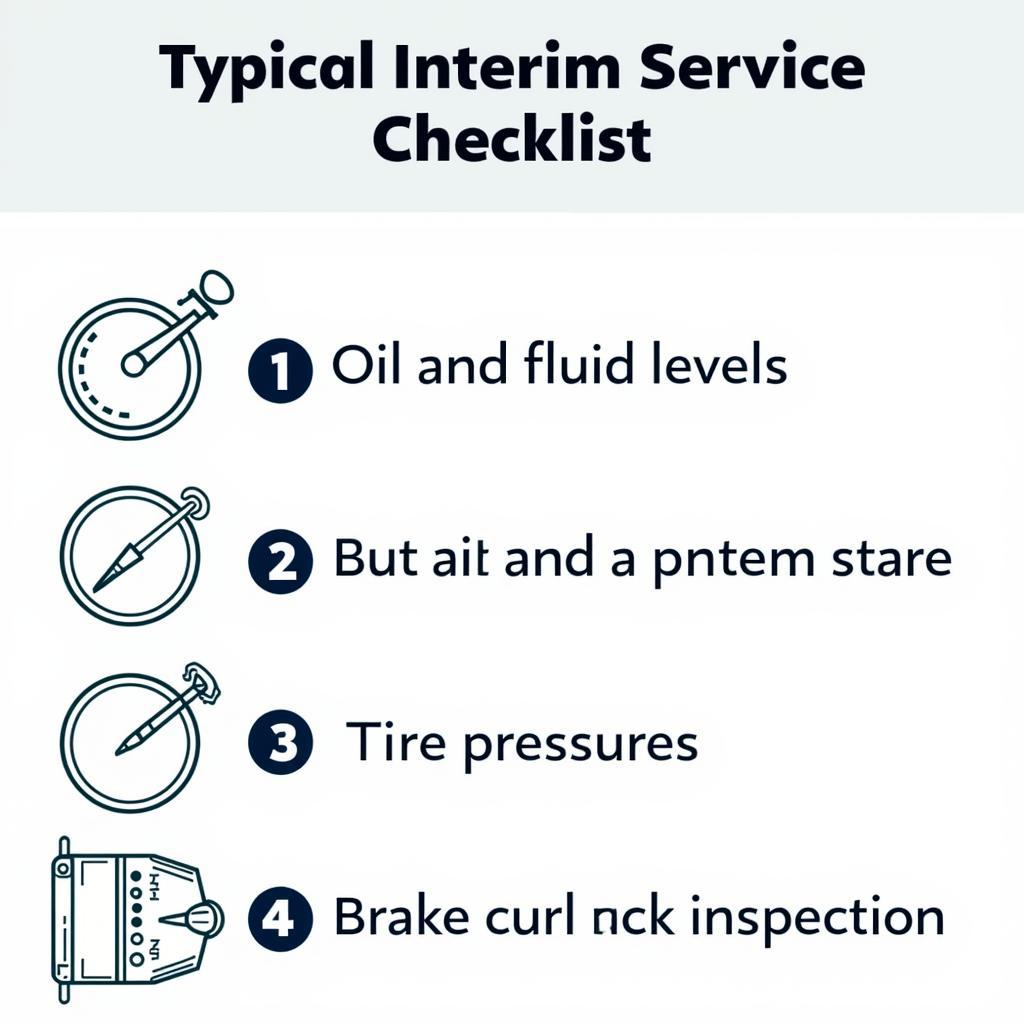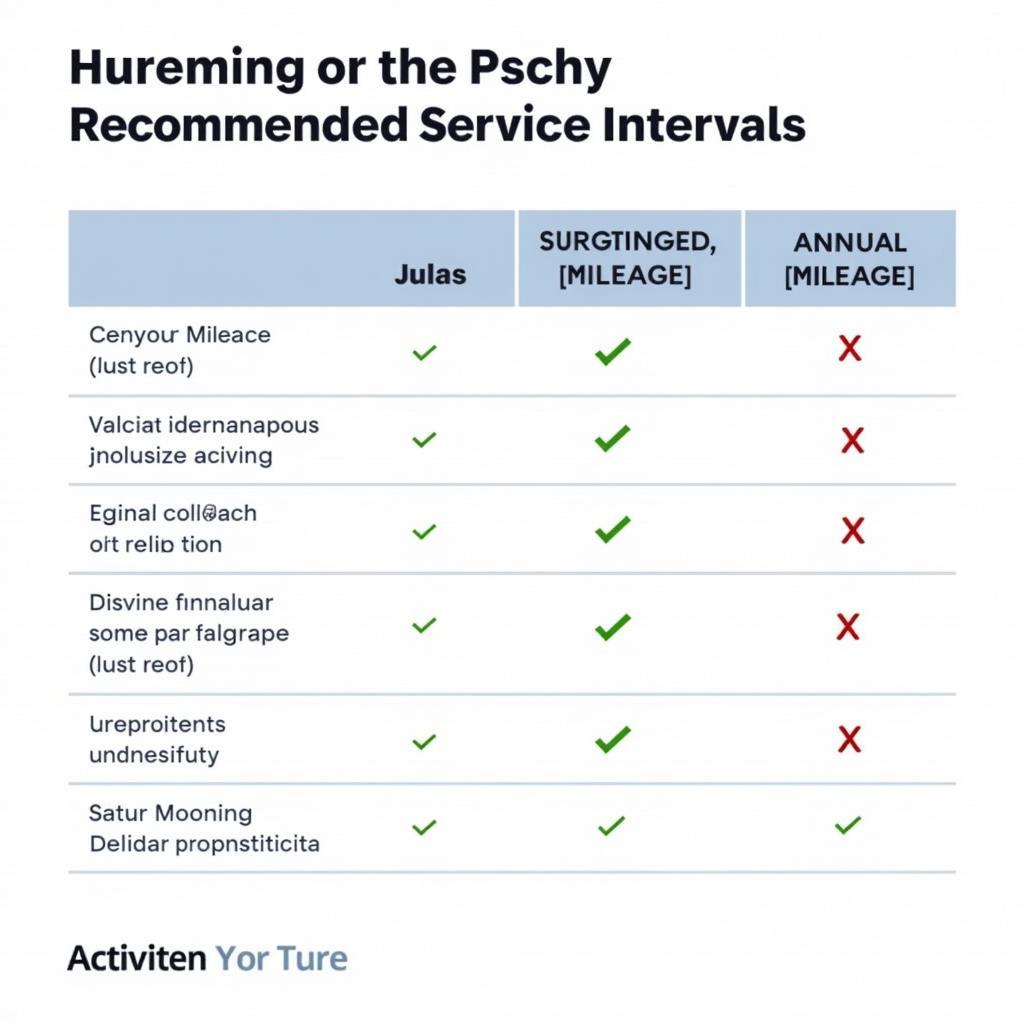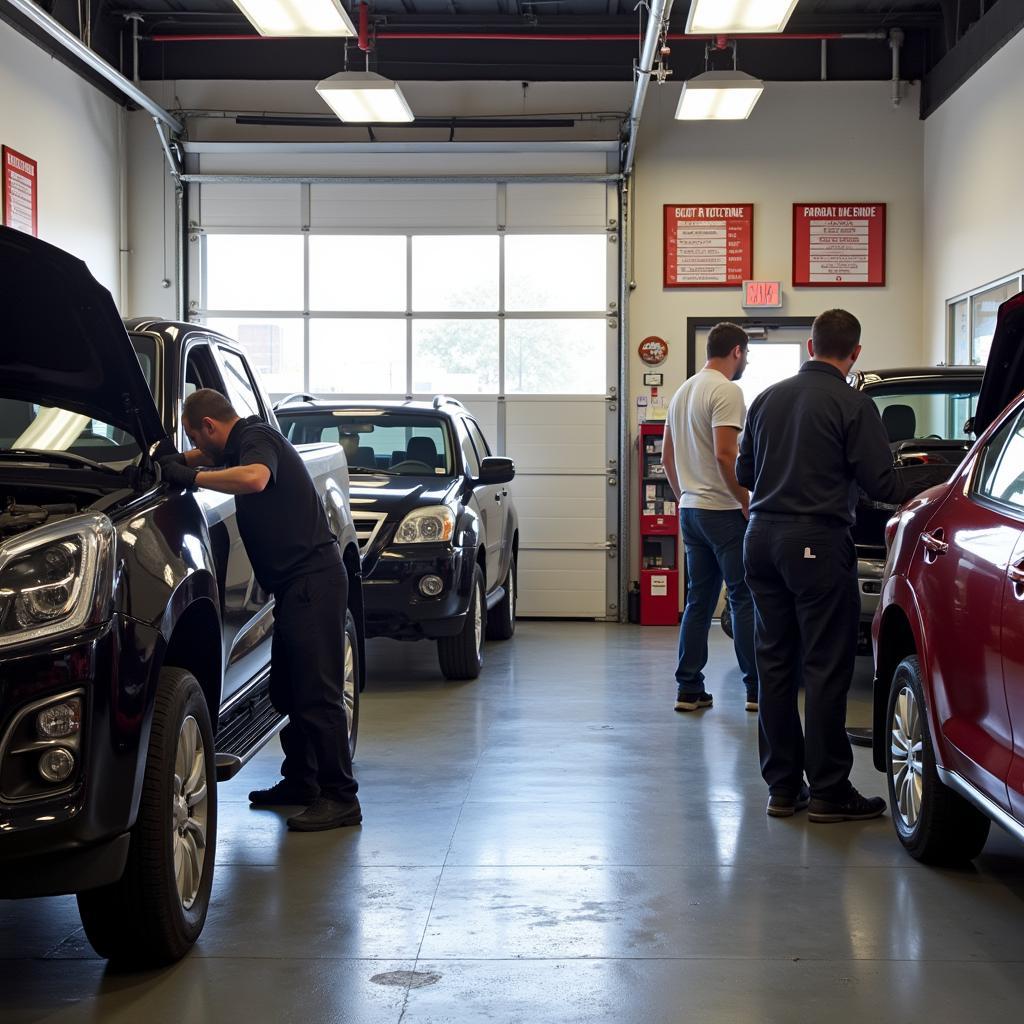Car Full Service or Interim Service: Which One Do You Need?
Choosing between a Car Full Service Or Interim Service can be confusing. This article will guide you through the key differences, helping you make the right decision for your vehicle and driving habits. We’ll explore the benefits of each service, typical costs, and factors to consider when choosing between a full and interim service. Let’s dive in and clear up the confusion!
Understanding the Difference Between Interim and Full Car Services
An interim car service acts as a check-up between full services, ensuring your car remains roadworthy and helps identify potential problems early. It’s particularly recommended for high-mileage drivers. A full service, on the other hand, is a comprehensive check and maintenance procedure covering all essential components. It’s typically recommended annually or every 12,000 miles, whichever comes first.
 Interim Service Checklist
Interim Service Checklist
What Does a Full Car Service Include?
A full car service is designed to be a thorough examination of your vehicle. It includes everything in an interim service, plus additional checks and replacements like spark plugs, fuel filter, and air filter. It provides a comprehensive overview of your car’s health, ensuring everything is in optimal working order.
car full service vs interim service
What’s Included in an Interim Car Service?
An interim service covers essential checks, including oil and filter change, brake inspection, tire pressure check, and topping up essential fluids. Think of it as a “health check” for your car, keeping it running smoothly between full services.
When Do I Need a Car Full Service?
Generally, a full service is recommended annually or every 12,000 miles. However, if you’re a high-mileage driver, you might need it more frequently. Consult your car’s owner manual for specific recommendations.
When is an Interim Service Necessary?
High-mileage drivers should consider an interim service every 6 months or 6,000 miles. It’s also a good idea if you’re planning a long journey or notice any unusual noises or performance issues with your car.
Factors Influencing Your Service Choice: Full vs. Interim
Several factors play a role in deciding between a full and interim service. Your annual mileage, driving conditions, and the age of your vehicle are all key considerations.
difference between interim and full car service
 Mileage and Service Chart
Mileage and Service Chart
Cost Considerations: Full Service vs Interim Service
As expected, a full service costs more than an interim service due to the extensive checks and parts replacements involved. However, regular maintenance can prevent costly repairs down the line.
“Regular car servicing, whether interim or full, is not an expense, but an investment in the longevity and safety of your vehicle,” advises John Davis, Senior Automotive Technician at Elite Auto Solutions.
Car Service and MOT: A Combined Approach
While a service and MOT are distinct, combining them can be a convenient and cost-effective approach. Many garages offer combined service and MOT packages.
“Combining your car service with an MOT is a smart way to save time and potentially money,” adds Sarah Miller, Lead Mechanic at AutoCare Experts.
Conclusion: Making the Right Choice for Your Car
Whether you opt for a car full service or an interim service depends on your individual needs and circumstances. Consider your mileage, driving conditions, and budget to make the best decision for your vehicle’s health and your peace of mind. Regular servicing is crucial for maintaining your car’s performance, safety, and resale value.
FAQ
- How often should I service my car?
- What is the difference between a full and interim service?
- How much does a car service cost?
- Can I service my car myself?
- What happens during a car service?
- Do I need a service before an MOT?
- How long does a car service take?
For assistance, contact us via WhatsApp: +1(641)206-8880, Email: [email protected] or visit us at 456 Oak Avenue, Miami, FL 33101, USA. We offer 24/7 customer support.

